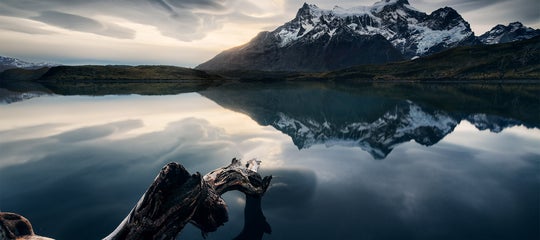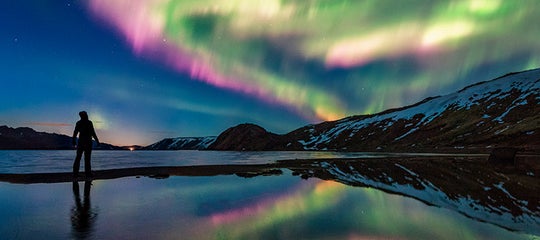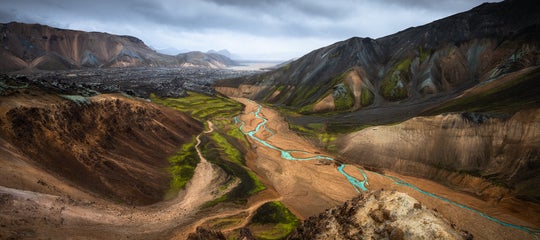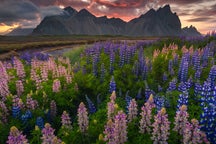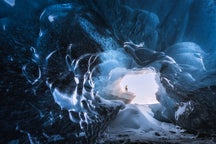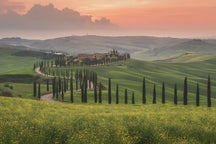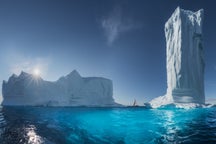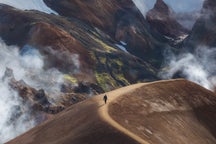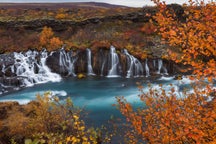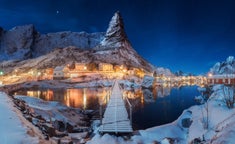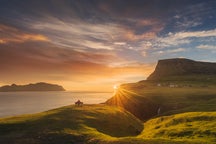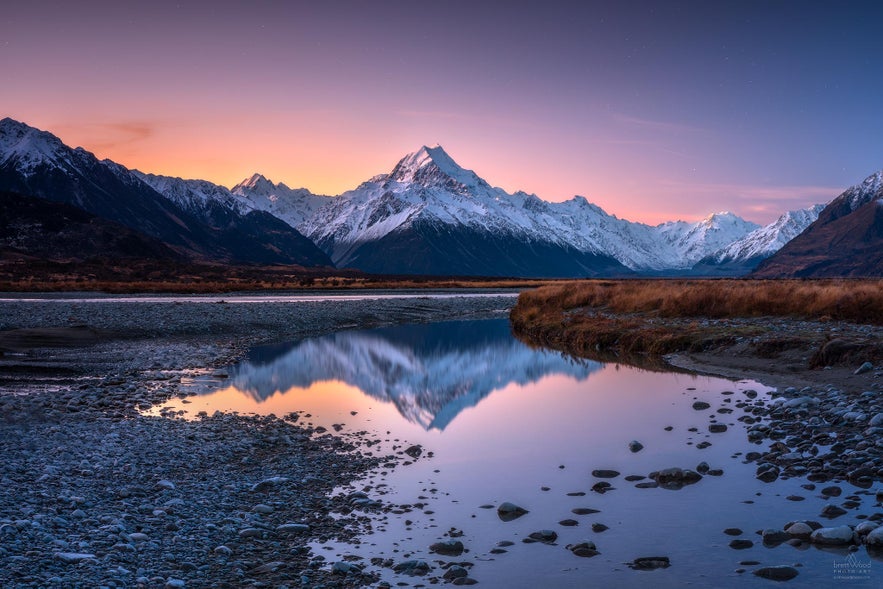
From humble beginnings to travelling the world – Australian landscape photographer, Brett Wood, has turned what was once just a hobby into a fully-fledged career. Having grown up in a farming region in the heart of New South Wales, Brett has since moved to New Zealand, the Land of the Long White Cloud.
- Check out this New Zealand Spring Photo Workshop
- Explore these articles on Landscape and Nature Photography
- Discover What to Buy? New vs Secondhand Camera Equipment
This accomplished photographer runs a number of photo workshops in places such as Canada, Yellowstone and Africa, with a raft of returning clients who are keen to learn all about his passion and style of photography. This week, we had the honour of chatting with Brett about his work and the vision behind it, as well as the impact that photography can have upon our mindsets and mental health.
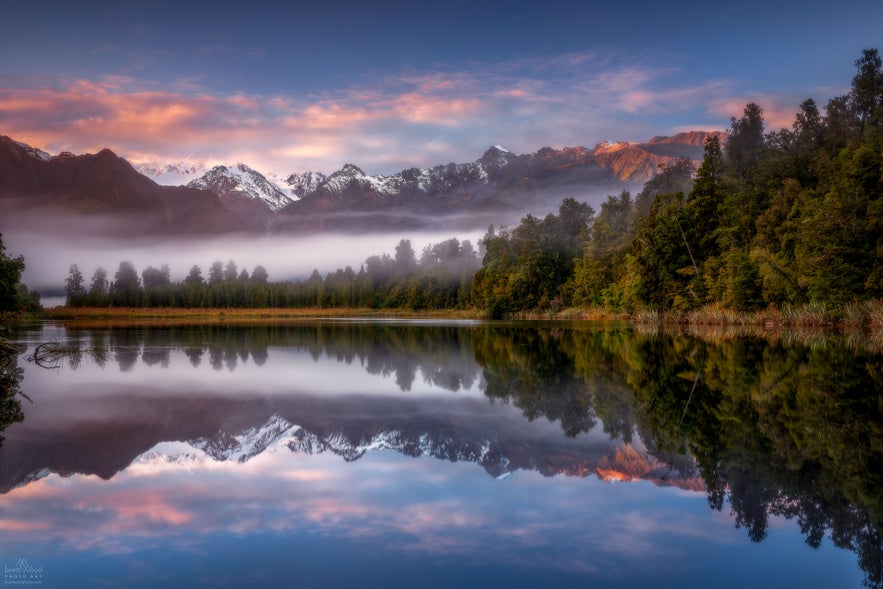 Brett Wood is a professional landscape photographer and guide from Australia. Photo by: 'Brett Wood'.
Brett Wood is a professional landscape photographer and guide from Australia. Photo by: 'Brett Wood'.
Hello Brett, thank you for joining us today! For those who are unfamiliar with your work, could you please give a bit of an introduction about who you are and how you came to be a professional landscape photographer?
I’m an Australian, now living in Wanaka, New Zealand. I spent a career for many years in the construction equipment industry and was always a keen landscape and nature photographer hobbyist. My photography passion grew and grew, and the passion eventually took over. I made the full-time move to being a professional photographer and guide in late 2014.
I’m an extremely passionate person and I’m very passionate about landscape and nature photography, meeting, teaching and helping people. I’m also very passionate about New Zealand; I call it my spiritual home.
From where do you draw your inspiration? Are there any other artists or photographers who have inspired your art?
I feel I’m forever evolving as a photographer. I’m certainly drawn to certain elements, such as mountains and lakes; more simplistic, peaceful scenes and some long exposures. I feel I have definitely forged my own style and am continuing to hone and improve on that style.
In more recent times, I have also enjoyed shooting landscapes with a telephoto lens. I don’t follow many other pro photographers purposely, as I don't want to “copy” others, but a couple I really admire for their natural talent would be Michael Shainblum and Adam Gibbs.
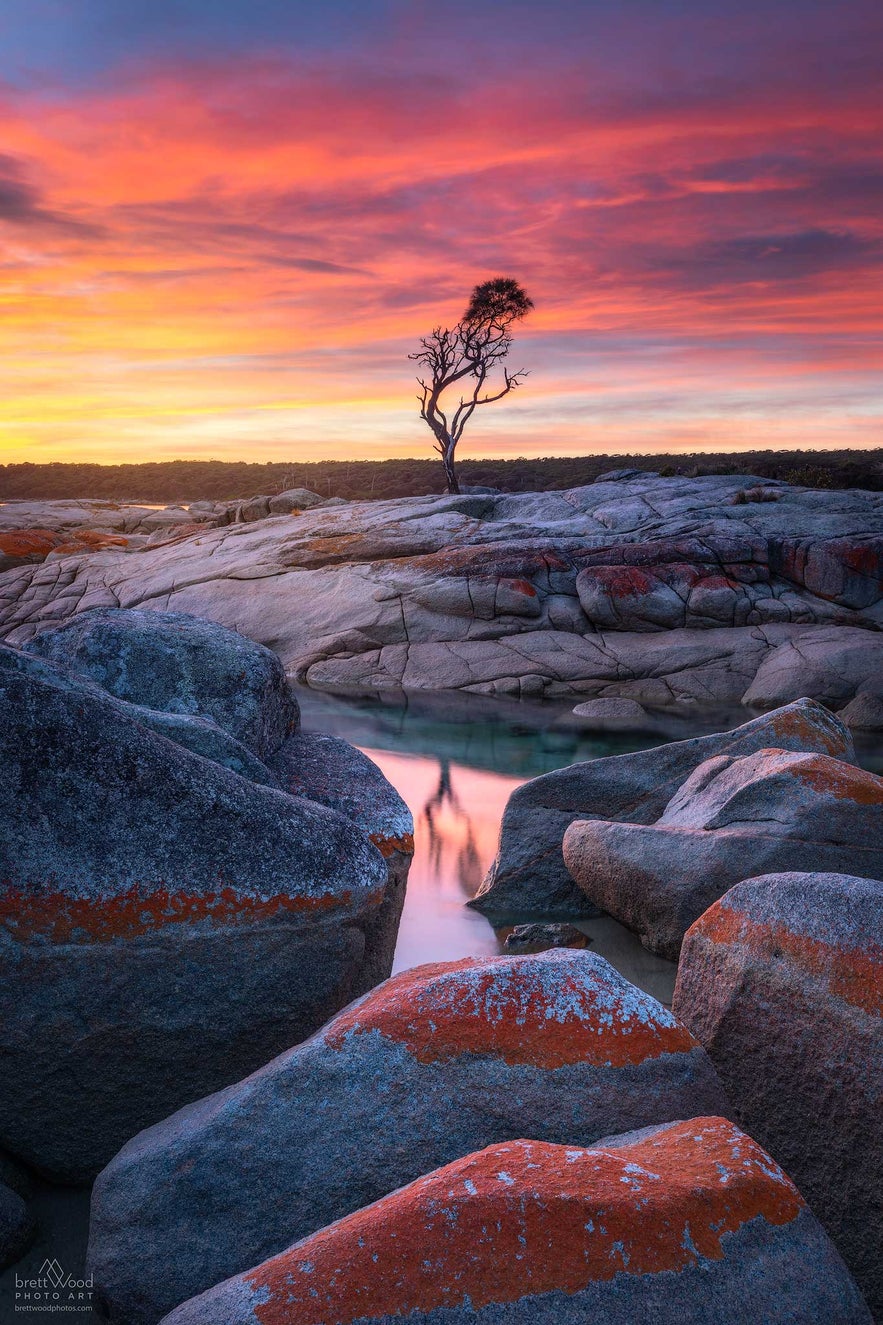 Brett draws his inspiration from the nature around him. Photo by: 'Brett Wood'.
Brett draws his inspiration from the nature around him. Photo by: 'Brett Wood'.
- See also: Interview with Rach Stewart
How important is it to have your own niche in landscape photography? How would you describe your style?
It’s taken me several years to develop my “style''. I feel I have it now and am happy with where it's going. I think it's vitally important for the longevity of any photographer to instinctively find their own style. As I mature in life, I definitely lean towards a more natural style and I call my style “authentic” or “photo art”.
Can you share with us the most memorable story that you’ve experienced in your career?
There's many of these, it's hard to single out one. I guess one that really sticks in my mind was a day in the middle of winter at the famous Bled Lake in Slovenia. I arrived there around midday after heavy snowfall and light snow still falling. The afternoon's photography that followed truly was just like living in a fairytale; tremendous soft conditions, gorgeous fresh snow on all the trees and soft, foggy light through until a glowing pink and purple sunset. I’ve only edited a couple of images from this day but still have several great ones on my hard drive. The day ended with some local Slovenian wine and some of the famous Bled cream cake.
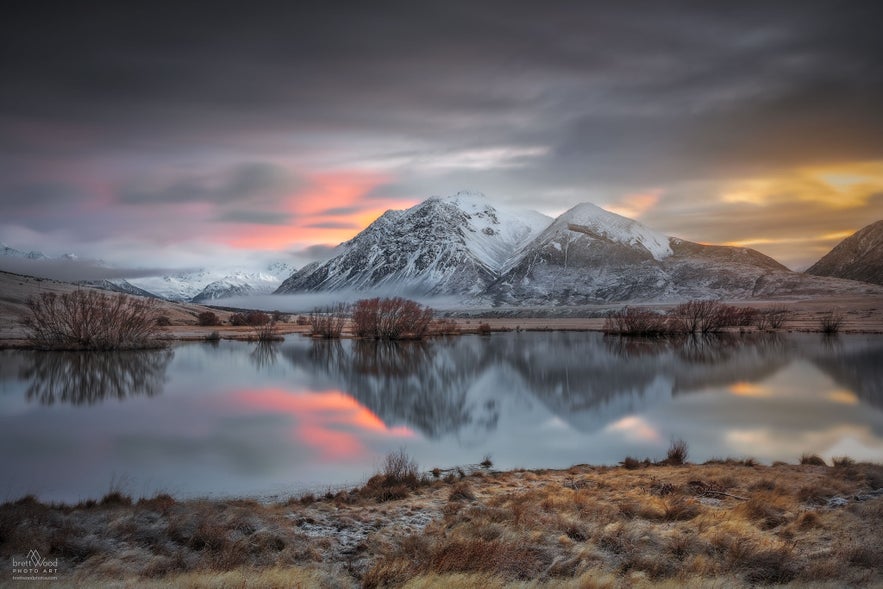 Memorable moments in photography are as much about the experience as they are about nature. Photo by: 'Brett Wood'.
Memorable moments in photography are as much about the experience as they are about nature. Photo by: 'Brett Wood'.
- See also: Slovenia Photo Workshops
What would you consider to have been your greatest achievement in photography so far? How did you set about realising this goal?
I’ve never been a person for photography competitions or anything competitive or similar. I guess my own goals are only to myself and are in my own mind. They’re usually related to generally improving my own photography and delivering a premium service to my clients. I have a lot of repeat clients, so that's satisfying to know people are continually returning. They’re obviously happy with the product I’m delivering, so that's an achievement. Also, more recently, my print sales have done well, so that's very satisfying for me knowing people want my photo prints on their walls.
In your opinion, what are some of the characteristics that a landscape photographer should possess? How does this differ from other fields of photography?
I often see good photographers from other genres struggle to get their head around shooting landscapes. However, I don't think it’s that different, fundamentally. Like all photography, you need a good understanding of light and especially composition. You need extremely good patience, the ability to adapt to current conditions very quickly and think on your feet. A calm mindset is essential, a love of nature, be okay with early starts and lots of coffee, and a good sense of humour.
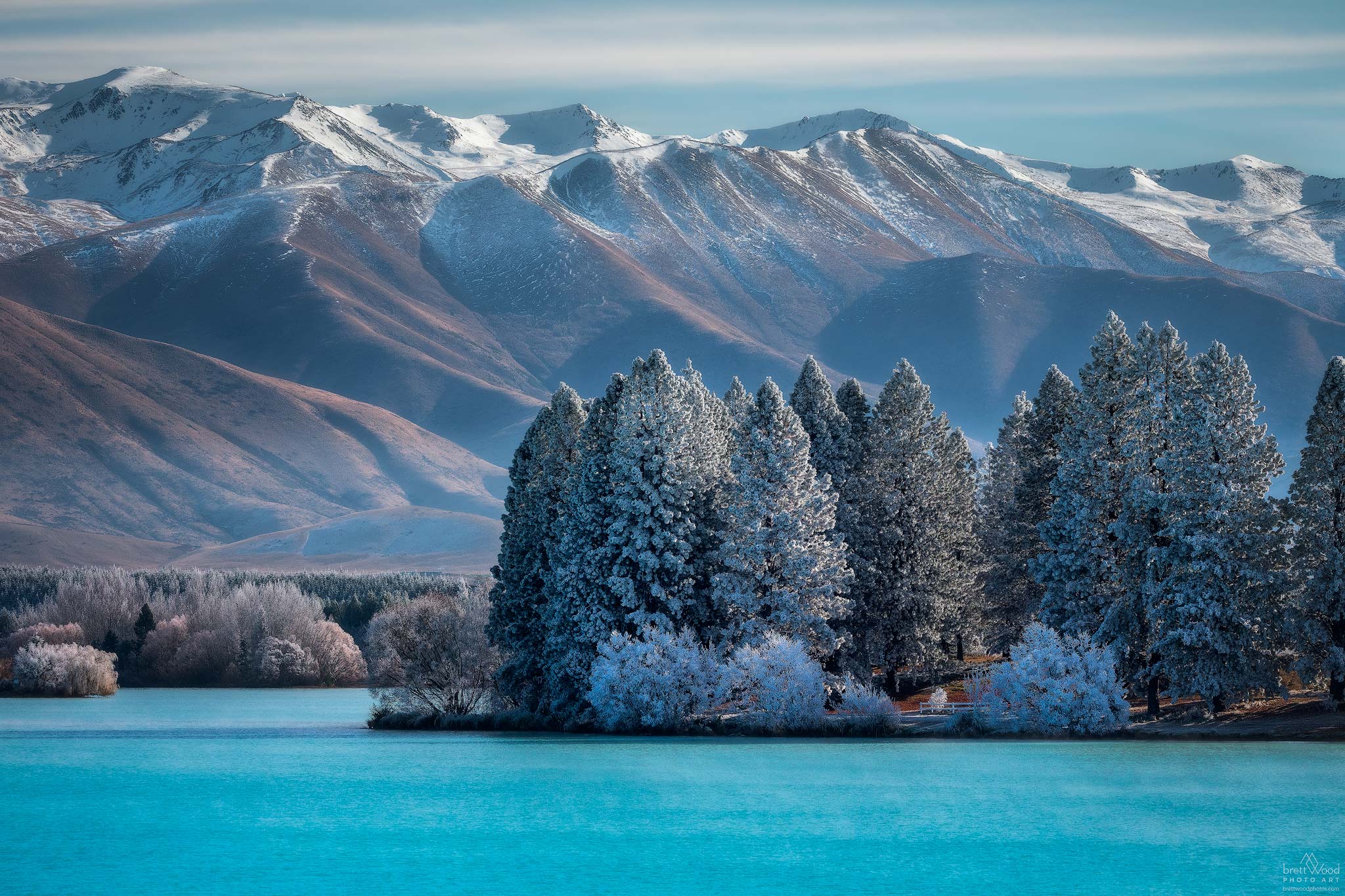 Good light is one of the most important requirements for landscape photography. Photo by: 'Brett Wood'.
Good light is one of the most important requirements for landscape photography. Photo by: 'Brett Wood'.
How much preparation do you put into taking a photograph or a series of photographs? What are your preferences in relation to camera equipment, compositions and subject matter?
Almost all of my best photos are taken at locations I've been to several times. I think it can take you a couple of visits to get a complete picture and understanding of a place and the light, etc. So after I've visited somewhere, I start to think up my photos from that location in my head. I’ll also use apps to predict light more than the weather and also continue to shoot a similar location and composition if i think it will be a killer photo and is worth pursuing until you get the right conditions.
As for camera equipment, I’ve always used Canon gear and currently use a Canon 5D MkIV. I have a couple of other Canon cameras too. As for lenses, I now only own 3 lenses: the 16-35mm, the 24-70mm and my latest favourite is my 100-400mm. I am considering an upgrade on gear this year and am eagerly awaiting Canon's new EOSR5. If this camera delivers, I'll go that way with a set of lenses. If it doesn't deliver, I'll seriously look to change to Sony.
Another piece of gear I believe in is a high quality tripod. I use a Sirui R3213.
- See also: Canon vs Nikon - DSLR Comparison
Your photographs have such beautiful lighting and convey a wonderful feeling of serenity. Can you tell us a bit about how you utilise post-processing software to reach the final result? What are some of your techniques for photographing and editing landscapes?
I try to keep my images to a single frame and rarely exposure blend. Very occasionally, I will use focus stacking techniques. My editing process starts with basic adjustments in Adobe Camera Raw and then I finish off using luminosity masks and predominantly the TK actions panel in Photoshop. I don't ever create composite images as I'm really trying to convey the scene the way I see it.
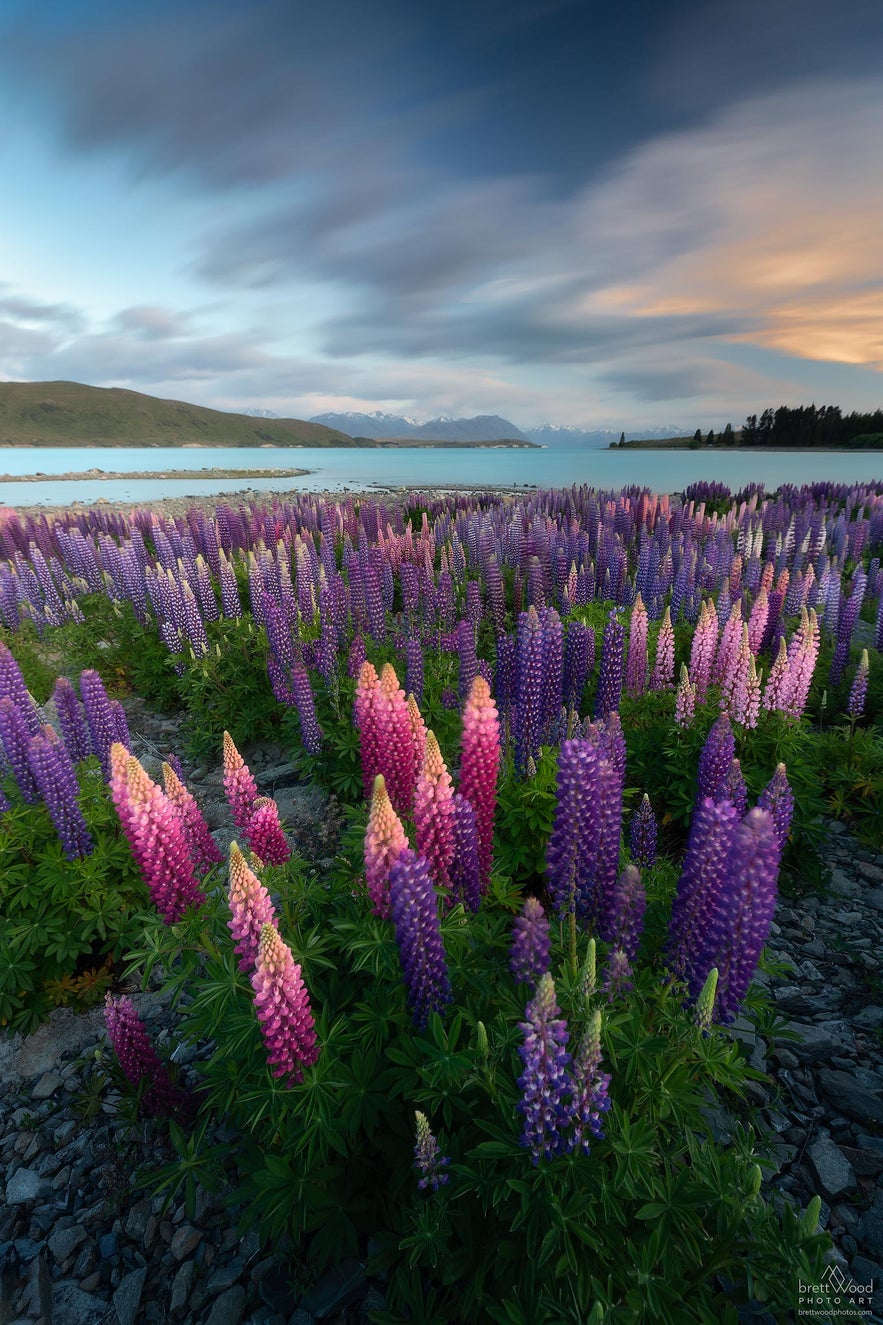 Brett's aim is to convey the scene in the way that he has seen it. Photo by: 'Brett Wood'.
Brett's aim is to convey the scene in the way that he has seen it. Photo by: 'Brett Wood'.
The topic of post-processing in landscape photography sometimes provokes controversy. Are there any boundaries that you believe should never be crossed when editing an image? What about grey areas where you believe photographers need to make a decision based upon their own judgements?
Post-processing really is up to the individual. Photography is a form of art and everyone has a different view on that; it's our own creative licence, if you like.
For me, I don’t believe in much image manipulation and am always attempting to convey a scene as close to the original authenticity as I remember seeing it. I have nothing against others taking a creative licence and doing composites or highly creative work if that's the style they like.
One thing that is discussed quite often on social media these days is the impact of location-specific tourism upon nature, wildlife, culture and the environment. What is your take on this?
Yes, social media has no doubt had a significant impact on some locations. It's a double-edged sword and a balancing act, I think. The majority of people still look after and respect the environment; however, there is, unfortunately, a minority group that aren't doing the right thing. I don't think the people that are doing the right thing should have to suffer at the expense of the minority. How is that policed, well, I don't know? In my own photography workshops, I tend to not take clients to overly touristy locations very often.
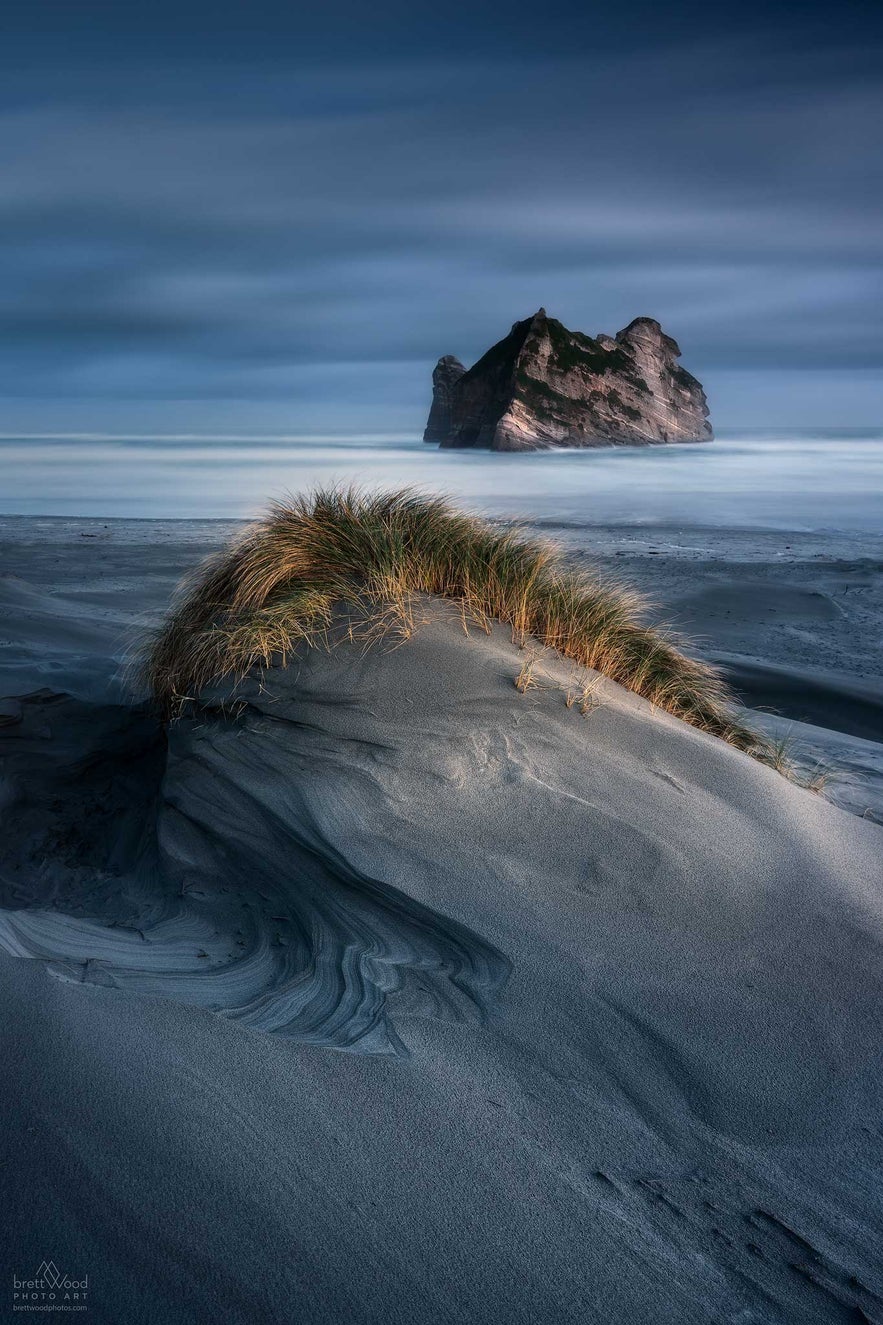 Brett tries to take his clients to locations that are not photographed as much as the well-known spots. Photo by: 'Brett Wood'.
Brett tries to take his clients to locations that are not photographed as much as the well-known spots. Photo by: 'Brett Wood'.
Do you feel that photography can have an impact upon people’s mindsets? How can photographers utilise their work to motivate change?
Yes, absolutely, I think photography has a very positive impact on some people's mindsets, including my own. For many people, photography is far more than just that. It's relaxation, it's adventure, it's therapy, it's a release from the everyday stresses they may endure in their lives. I’ve seen and met clients that have suffered stresses or trauma in their lives and have seen them really prosper mentally from the photography journey and also really improve their own photography and open up their creative mind.
You guide a number of photography tours and workshops all around the world, where you teach photography in-field in some of the most stunning locations. Could you tell us a little bit more about these? What kind of photographers would benefit most from joining these tours and what do you offer that sets your workshops apart from the rest?
My photography tours are my main line of work now and I really specialise in guiding clients in New Zealand's South Island. I have over 20 years experience in the South Island of New Zealand and I know the landscape, seasons and conditions extremely well. I also guide other tours to Australia, Canada, the USA and African wildlife safaris.
I think the standout feature of my tours is that I try not to shoot at many of the “iconic” tourist locations and rather, find lesser known quieter locations. My clients always talk about the high level of personal photography service I offer and always love the food and coffee. My clients range from beginners to advanced photographers but the majority are probably intermediate photographers looking to learn much more about all the fine points, in particular, an understanding of light and composition.
 One of the main features of Brett's tours is that participants will shoot lesser known, more quiet spots in addition to the icons. Photo by: 'Brett Wood'.
One of the main features of Brett's tours is that participants will shoot lesser known, more quiet spots in addition to the icons. Photo by: 'Brett Wood'.
What are your thoughts on staged photo opportunities arranged specifically for a tour or workshop? Are there any ethical dilemmas that need to be considered?
To be honest, I’ve never given this any thought. It’s not something I’ve ever done or envisage doing, I much prefer to let Mother Nature deliver the scene.
- See also: Beginner's Guide to Street Photography
Where is your photography going from here? Are there any projects that you are currently working on? What are your plans for the future?
I’m writing this amidst COVID-19, so all my plans have changed. Personally, my own photography is in a good place and I’m producing some good work that I like. I’ll continue with that and endeavouring to produce nice, authentic, natural images.
From a business perspective, post-COVID, I’ll continue with the New Zealand workshops and have African wildlife photography tours on the calendar now. I'll also continue with my Australia and Canadian Rockies Tours in the future.
 COVID-19 has changed the plans of many landscape photographers. Photo by: 'Brett Wood'.
COVID-19 has changed the plans of many landscape photographers. Photo by: 'Brett Wood'.
Thank you for sharing your thoughts with us in this interview, Brett! What are some final words that you’d like to leave with our readers?
Just the real stuff. For me, COVID has really reiterated what I love so much about photography and that is to follow and shoot on your instincts. Don’t get caught up in the social media or competitive side of photography. Have fun when you shoot; laugh, be happy, and enjoy nature and the environment you’re shooting in. When you’ve finished shooting in a grand vista, put your camera away, go and sit on a rock and just take it all in; it will help you spiritually but also creatively. Thank you for inviting me to do the interview, I’ll end with a quote I made: “No form of photography is right or wrong, it’s individual. I believe photography is a form of art; everybody has a different interpretation of photography, I call mine photo art”.
For more information on Brett Wood's work, you can visit his website or find him on YouTube, Facebook and Instagram.
Learn photography in beautiful locations all around the world. Check out our range of international photo tours and photography workshops.


